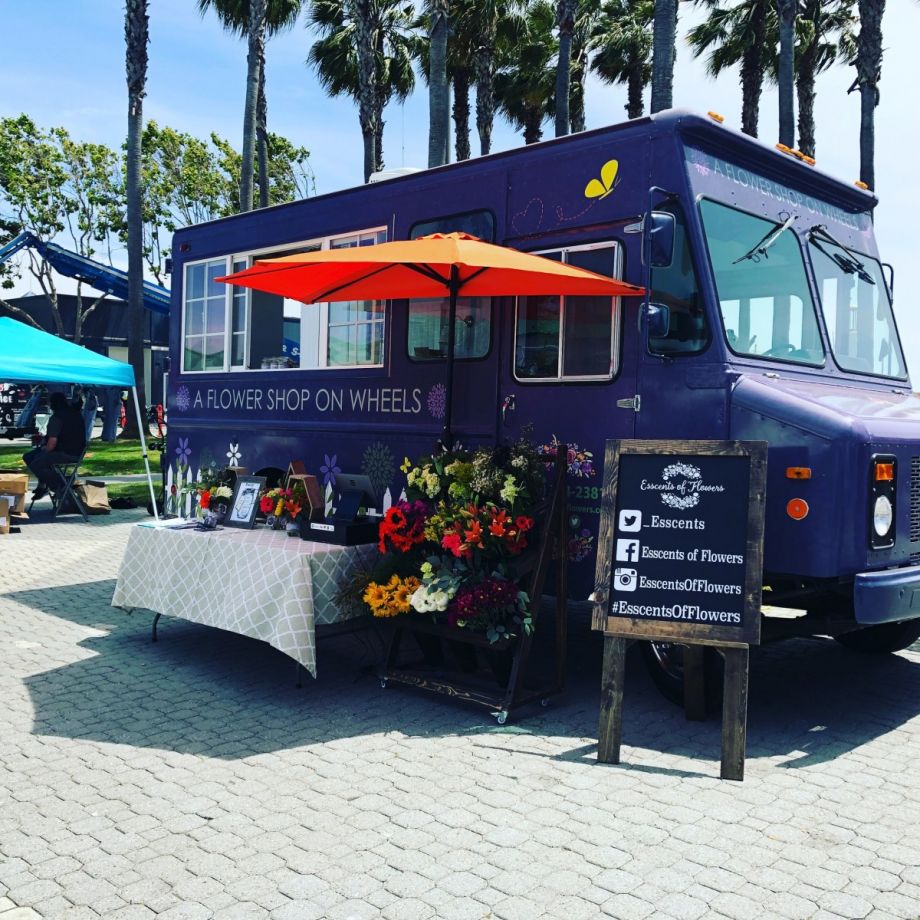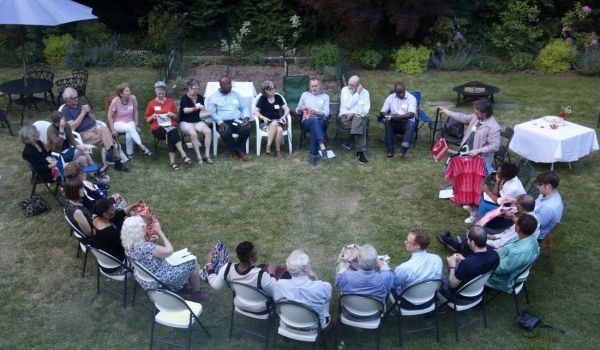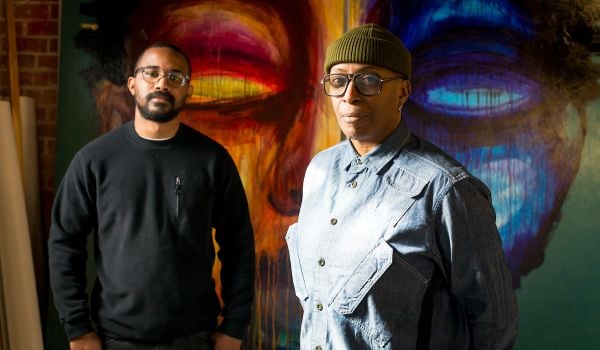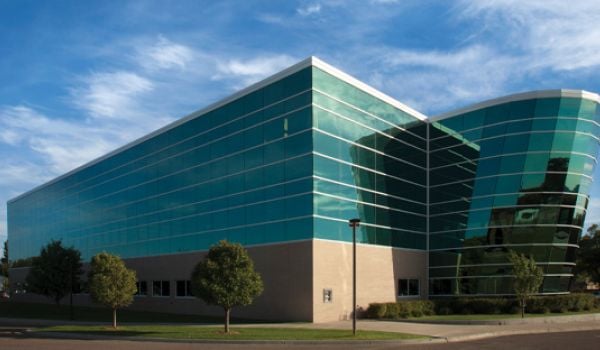Born and raised in Oakland, Esscents Of Flowers founder and CEO Ariana Marbley knew that she wanted to own a flower store.
“I could picture it in my head,” she says. “Starting a business was something I went back and forth with for a long time. Everybody that I knew of growing up, and even somewhat into my adulthood, everyone worked for a company. Y’know, go to school, you get a job. You do all these things that, quote unquote, you’re supposed to do.”
In the face of surging rent prices, Marbley had to figure out how to sell flowers that involved being physically present but avoided the cost of a brick and mortar location. “Staying in Oakland was extremely important to me,” she says.
That image in Marbley’s head has become a reality thanks to a collaboration known as the Runway Project. As Next City has previously covered, the Runway Project’s pilot initiative offers “friends and family financing” to primarily black entrepreneurs in Oakland. Project Director Nina Robinson tells Next City that the project has so far extended $262,000 in ‘friends and family’ capital to 15 entrepreneurs. Marbley got a $20,000 loan to help her buy a truck she uses to cart around flowers as a pop-up vendor around the city.
“All our loans have an [initial] interest-only period,” Robinson says. How long that period lasts depends on the size of the loan. If it’s less than $10,000, it’s 18 months, two years if it’s $10,000 or more. “It’s so they can put that capital to work and not worry about making principal and interest payments from day one,” says Robinson.
The Runway Project, founded by 2017-2018 RSF Social Finance Fellow Jessica Norwood, is working on plans to expand its efforts to other cities around the U.S.
Racial disparities in startup capital remain a nationwide barrier to opportunity. At the venture capital level, the lack of funding going to anyone who’s not a white man has been well-reported. Garnering fewer headlines is the friends and family level — typically part of later investors’ due diligence is to ask about friends and family capital. According to Fundable, a crowdfunding platform, friends and family are the largest source of startup funding in the U.S., with entrepreneurs receiving an average of $23,000 from friends and family.
But according to 2017 Federal Reserve estimates, while the average net worth for white households is $171,000, the average for black households is just $17,600. (Racial dynamics in the real estate market may account for the lion’s share of that gap, recent research affirms.)
“Minorities, and women as well, when they’re starting a business, they tend to do so more with their personal assets,” says economist Kate Bahn. Bahn co-authored a report for the Center for American Progress: “A Progressive Agenda for Inclusive and Diverse Entrepreneuship.” Using personal assets such as credit cards, Bahn explains, puts an entrepreneur at greater financial risk. At the same time, less capital means a new business has less stability, according to Bahn.
Marbley went to four different banks to apply for loans before being approved by the Runway Project.
“I got a call [about the loan] and I started crying,” Marbley says. “Running a business can take an emotional toll because you put so much of your heart into it.”
Runway’s funding has helped entrepreneurs like Marbley access additional funds, too. After receiving her $20,000 loan from the Runway Project, she accessed another $10,000 from Kiva.
Black women like Marbley are the fastest growing entrepreneur group in the U.S. However, less than three percent of businesses owned by Black women have employees versus 20 percent of businesses as a whole. Access to capital is a significant reason for this difference.
“These folks are resilient and innovative and resourceful,” says Robinson. “What they’re able to do with $20,000 is what someone else would do with $100,000.”
Part of what makes the fund special, Robinson says, is the emotional support entrepreneurs receive. “I’ve never been to a credit committee meeting like the Runway Project,” she says. “It’s equal parts ‘We believe in you’ and ‘You can do this’ and accountability.”
This support, Robinson says, also comes with the awareness that people of color face greater barriers to obtaining credit. Credit scores, for example, often prevent entrepreneurs of color from obtaining a loan. The Runway Project’s partnership with Self-Help Federal Credit Union helps entrepreneurs repair their credit. “So, in addition to getting a very fair price for this capital, it’s also repairing historical harm at the same time,” Robinson says.
The Runway Project model combines three different kinds of capital. Loans are funded by certificates of deposit held at Self-Help Federal Credit Union — it was important for the project to raise capital using a vehicle that was accessible to friends and family of entrepreneurs of color, even if that wasn’t the case for initial investors. To enable borrowers to obtain capital without putting up collateral, Runway also raised money for a donation-based collateral fund, held in a seperate account at the credit union. This fund maintains a dollar in collateral for each dollar in loans. Other credit unions have also used similar structures pairing donation-based collateral with loans. The last type of capital is the “friends and family” wrap-around support that comes from Uptima Business Bootcamp, a woman-of-color led, member-owned business accelerator based in Oakland.
Another key barrier, Robinson says, is that Runway Project is in a similar position to its entrepreneurs. “We’ve been getting a lot of interest from investors who are want to move capital into our certificate of deposits fund,” she explains. However, some of the Runway Project’s own investors don’t yet recognize the importance of the wrap-around support that comes with the capital, before and after approving any loans.
“We are building the relationship before they even fill out the application. That’s the due diligence,” Robinson says, noting that there are still no full-time staff for the Runway Project itself.
In the meantime, Marbley says that the process of learning how to realize her dream has transformed her and made her more confident. It has also brought her unexpected support. “My oldest, he takes cards to school,” she says of her 9-year-old son. “He’ll say, ‘Mommy, I need a card.’ I’m like ‘What? Why do you need a card. You’re going to school?’ And he says: ‘Yeah, I heard one of my teachers. They’re getting married, so I need to make sure I have one of your cards.’”

Zoe Sullivan is a multimedia journalist and visual artist with experience on the U.S. Gulf Coast, Argentina, Brazil, and Kenya. Her radio work has appeared on outlets such as BBC, Marketplace, Radio France International, Free Speech Radio News and DW. Her writing has appeared on outlets such as The Guardian, Al Jazeera America and The Crisis.
Follow Zoe .(JavaScript must be enabled to view this email address)



_600_350_80_s_c1.jpeg)












